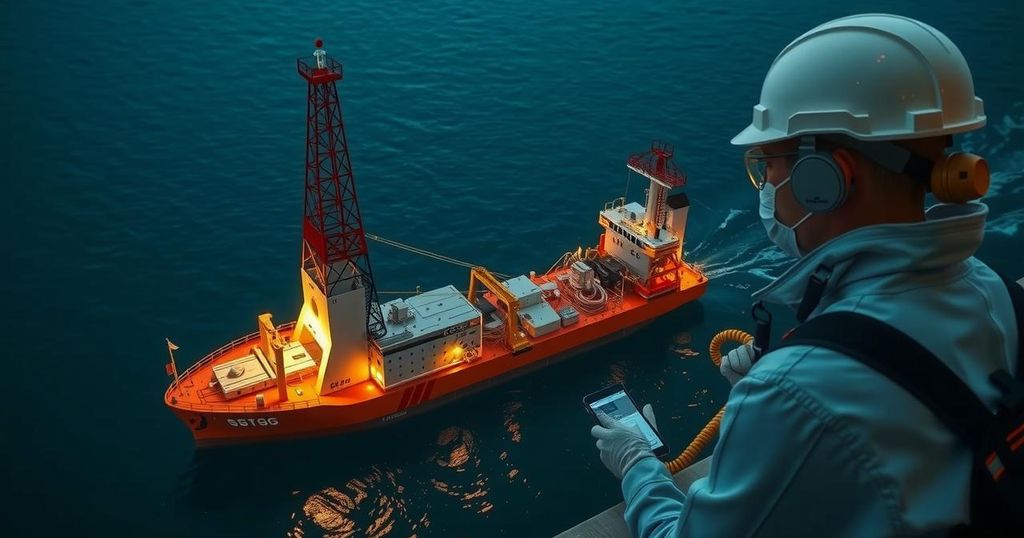A Durham scientist is part of an international team drilling off Japan’s east coast to investigate the 2011 Tohoku earthquake, which was among the largest in history, causing significant loss of life and the Fukushima nuclear disaster. The team, aboard the Chikyu vessel, aims to collect samples from the fault zone to gain insight into earthquake mechanisms and contribute to broader scientific knowledge about seismic risks.
A scientist from Durham is participating in an international team conducting drilling operations off the eastern coast of Japan, with the aim of investigating the 2011 Tohoku earthquake. This devastating event was among the largest recorded in modern times and resulted in a catastrophic tsunami, causing widespread infrastructure damage and leading to a meltdown at the Fukushima Daiichi nuclear power plant. Ultimately, the disaster claimed approximately 18,500 lives and displaced over 160,000 individuals.
In 2013, a prior mission, the Japan Trench Fast Drilling Project (JFAST), collected samples from the Japan Trench to better understand the earthquake’s causes. Now, the research team, including Durham Earth Sciences researcher Rebecca Robertson, is aboard the deep-sea drilling vessel Chikyu, continuing their investigations as part of the Tracking Tsunamigenic Slip Across the Japan Trench (JTRACK) project. This project focuses on drilling through the fault boundary where the earthquake occurred to gather samples and assess various physical properties.
The team has progressed significantly, having passed through the continental plate and reached the subducting Pacific plate. They are currently in the process of installing an observatory through the fault and sampling deep-sea sediments. High-resolution imaging has also been conducted within the fault zone, which will be analyzed alongside the gathered samples to deepen understanding of the earthquake’s dynamics.
Before the 2011 Tohoku earthquake, it was widely accepted that while subduction zones typically produced large quakes, shallow portions of faults did not experience significant movement as observed at deeper levels. However, the Tohoku earthquake contradicted this belief by exhibiting a substantial fault displacement reaching the seabed. Through their ongoing sampling efforts, the JTRACK team aims to uncover the mechanisms that led to this extraordinary seismic event. Among the expedition team, Rebecca Robertson is one of three representatives from the UK, which encompasses experts from Japan, the United States, and Europe.
The 2011 Tohoku earthquake registered as one of the largest seismic events in modern history, causing extensive damage and loss of life in Japan. The disaster also led to a significant nuclear crisis at the Fukushima Daiichi power plant, underscoring the importance of understanding seismic activities in the region. The Japan Trench is a key area of research because it represents a location where tectonic plates interact, leading to powerful earthquakes. Previous investigations, such as the JFAST project, have laid the groundwork for deeper inquiries into the processes behind such seismic events, making the current JTRACK expedition essential for advancing scientific knowledge in this field.
In summary, the ongoing JTRACK expedition led by a Durham scientist seeks to unravel the complexities surrounding the 2011 Tohoku earthquake and its unprecedented characteristics. By drilling into the fault where the earthquake occurred, the team is gathering valuable data that could enhance understanding of earthquake mechanics. This research is crucial not only for scientific advancement but also for enhancing preparedness for future seismic events in vulnerable regions.
Original Source: www.durham.ac.uk






